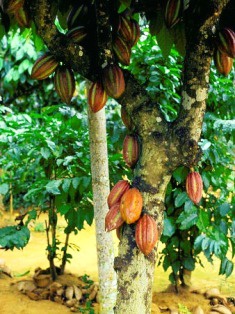Inadequate pollinators in cocoa and oil palm plantations have been identified as one of the major causes of low yields per hectare of these cash crops in the country.
This is an outcome of a research conducted by a team of entomologists and plant scientists at the Kubease/Bobiri study site of the Global Pollination Project-Ghana.
Dr Eric Frimpong and Mr Michael K. Adjaloo, Research Fellows of the Kwame Nkrumah University of Science and Technology (KNUST) and Lead Researchers at the project site, made this known to a gathering of scientists and researchers at the first seminar on pollination at Fumesua, near Kumasi on Monday.
They said inadequate pollinators in cocoa and oil palm plantations might be accountable for the low yields in cocoa and palm oil produced in Ghana despite government’s intervention of mass spraying exercise and the hi-tech cocoa seedlings in the cocoa sector.
The cocoa seminar, which was under the theme: “Conservation and Management of Pollinators for Sustainable Agriculture, through an Ecosystem Approach,” was organised by Global Pollination Project-Ghana.
The Global Pollination Project is an initiative being implemented in seven countries including Ghana, to harness the benefit of pollination services provided by wild biodiversity for human livelihoods and sustainable agriculture, through an ecosystem approach.
It is being funded by the United Nations Environment Programme (UNEP) through the Global Environment Facility (GEF) and coordinated by the United Nations Food and Agriculture Organisation (FAO).
“There is, therefore, the need for the government to take deliberate steps to increase pollinator population in cocoa plantations across the country to increase yield to enable Ghana to produce the desired crop yield per hectare as compared to other cocoa producing countries in the world,” the researchers added.
They suggested to farmers to increase the dumping of cocoa husks and stems of plantain and banana in cocoa plantations to help in the breeding of midges, insects which are efficient pollinators of the cocoa tree.
They should also intersperse the cocoa trees with plantain and bananas to aid pollination in their farms.
Dr Peter Kwapong, National Coordinator of the project, said Ghana’s economy depended on cocoa which heavily demands animal pollination for high yields.
It is, therefore, important for the country to pay attention to the issue of conservation and sustainable utilization of pollinators within the environment, which are mainly insects and bees.**
Business News of Tuesday, 17 April 2012
Source: GNA
Inadequate pollinators blamed for low cocoa and oil palm yields

Business















